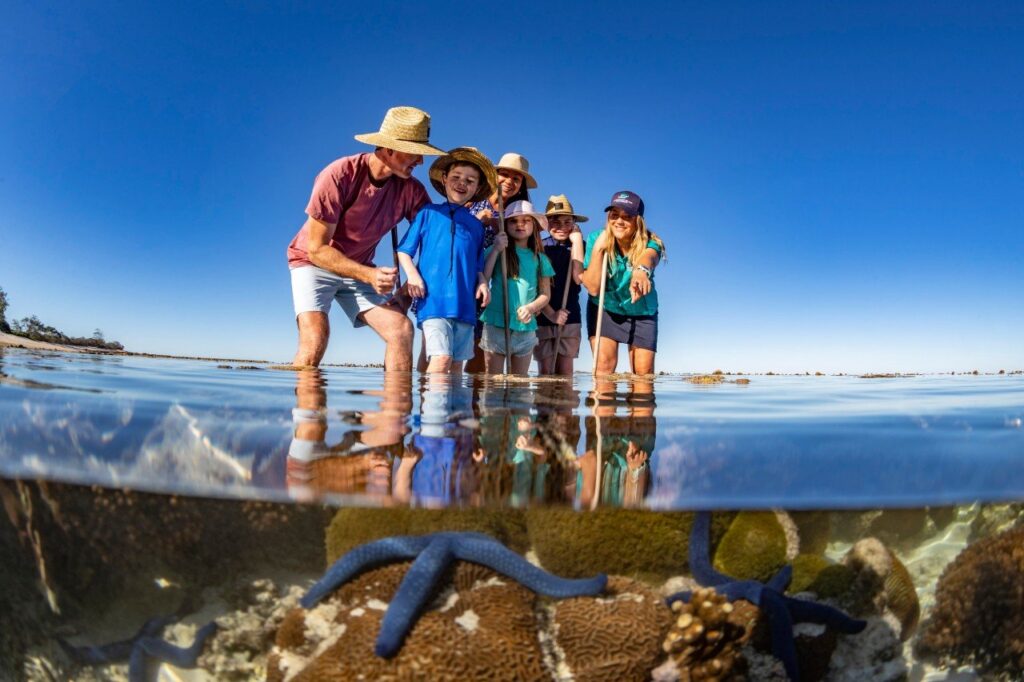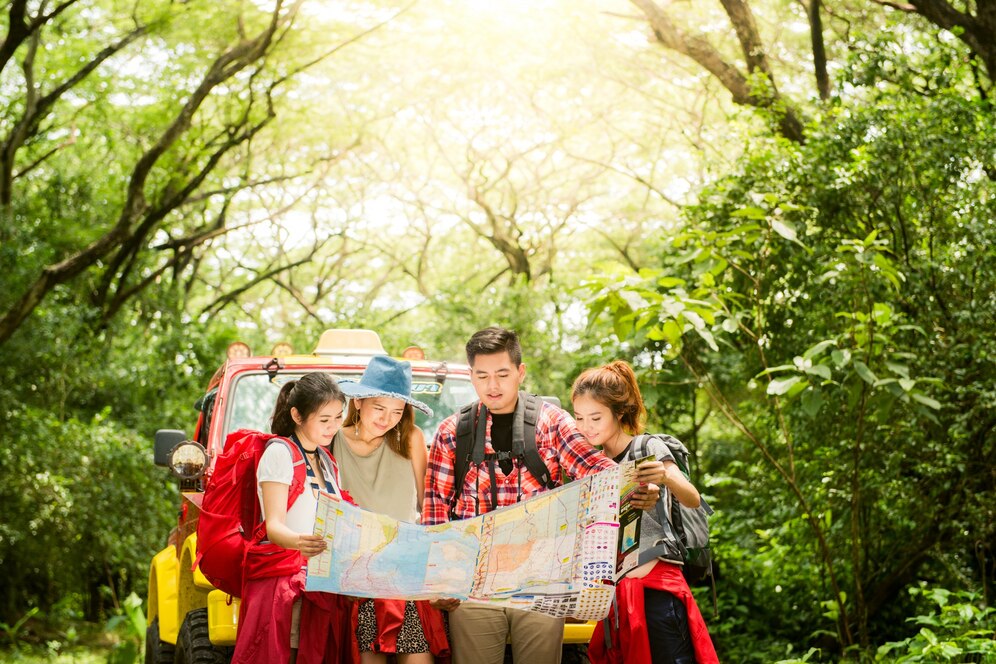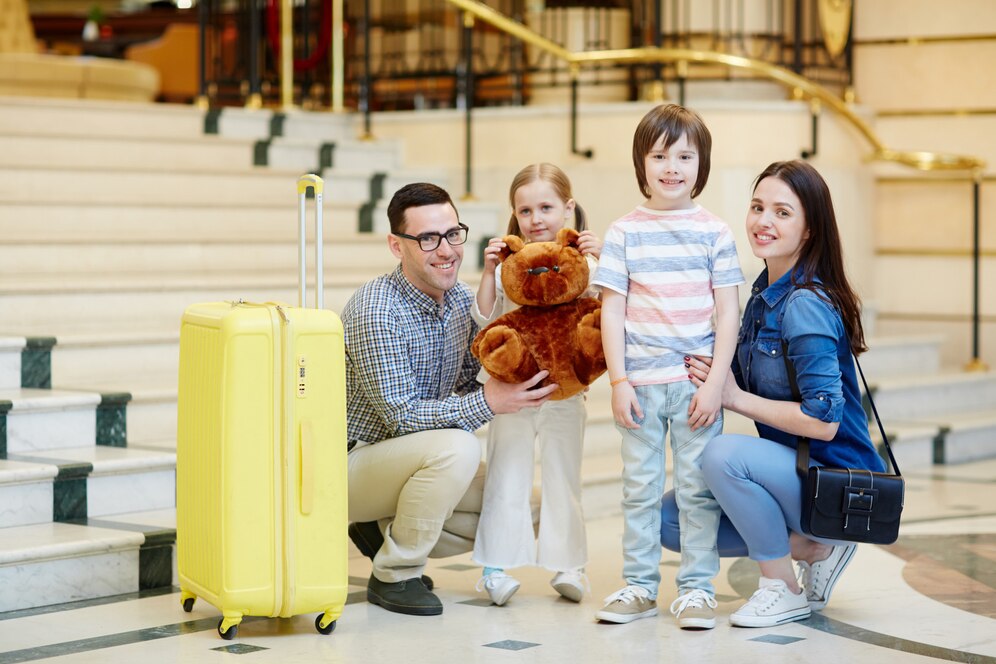The Parenting & Family Blog

How to Plan Fun and Educational Family Trips
Family trips offer more than a break from daily life. You can explore new places, experience different cultures, and learn as a family. However, planning a trip that caters to both fun and education can be challenging. Many parents ask how to balance fun and learning. They want their kids to have fun and learn useful skills and knowledge.
In this guide, we’ll look at why educational family trips matter. We’ll share handy tips for travelling with kids. Plus, we’ll explore great vacation ideas that mix fun and learning. By the end of this blog, you’ll have the knowledge and ideas to plan a trip your family will always remember.
Key Benefits of Educational Family Trips

Why It Matters
Educational family trips offer numerous benefits that extend beyond the holiday itself. They offer children a chance to learn in the real world. This helps them understand subjects like history, geography, and science better. These trips can spark curiosity and boost critical thinking. Children get to ask questions and explore new places, which helps them develop problem-solving skills.
Moreover, family trips can strengthen family bonds by creating shared experiences and memories. Travelling together helps families enjoy quality time away from everyday distractions. It boosts communication and teamwork. Exposing children to different cultures helps them build empathy and cultural awareness. These skills are vital in our globalised world.
Real-Life Applications
Consider a trip to a historical site such as Stonehenge or the Tower of London. These places provide many chances to learn. You can explore ancient civilisations and discover the history behind these landmarks. A trip to a science museum or wildlife park can ignite a child’s curiosity about science and nature. It offers a fun, hands-on way to learn that keeps them interested and informed.
Data-backed insights also support the benefits of educational travel. A study by the Student & Youth Travel Association found that 74% of teachers think travel greatly helps students grow personally. Also, 56% of teachers say travel benefits students’ education and careers. These stats show that adding educational elements to family trips is a smart investment in your child’s future.
Step-by-Step Guide to Planning an Educational Family Trip

Step 1: Choose the Right Destination
Research and Explore Options
The first step in planning a family trip for learning is picking the right place to visit. Consider places that offer a mix of fun activities and educational experiences. Look for places that are culturally, historically, or scientifically important. Make sure they match your family’s interests and learning goals. Websites, travel blogs, and social media are great for finding family-friendly places.
Consider Your Children’s Interests
Ask your children what they like. Involve them in the planning process. This will make them more excited about the trip. It will also ensure the destination has activities that match their interests. If your child loves marine life, think about visiting an aquarium or a beach. They can explore ocean ecosystems and learn more.
Step 2: Plan Educational Activities
Incorporate Learning into the Itinerary
Once you have chosen a destination, plan activities that incorporate educational elements. This could include guided tours, museum visits, or interactive workshops. Look for opportunities to learn about the local culture, history, and environment. Many places provide family-friendly tours and programmes. They aim to engage children and make learning enjoyable.
Balance Learning with Leisure
While education is important, it’s equally crucial to balance learning with leisure. Ensure that your itinerary includes downtime for relaxation and fun activities. This could be a day at the beach, a hike in a national park, or simply exploring the local area at your own pace. A well-balanced itinerary will keep everyone engaged and prevent burnout.
Step 3: Prepare for the Journey
Travelling with Kids Tips
Travelling with children requires careful preparation to ensure a smooth and enjoyable experience. Here are some tips to consider:
- Pack Smartly: Bring essentials such as snacks, entertainment, and comfort items for the journey. Pack educational games or books about your destination. They can keep kids engaged during travel.
- Plan for Breaks: Schedule regular breaks during long journeys to allow children to stretch and recharge. This will help prevent restlessness and keep spirits high.
- Stay Flexible: Be prepared for unexpected changes and adapt your plans as needed. Flexibility is key to a stress-free family trip.
Step 4: Encourage Active Participation
Get your kids involved in learning. They can ask questions, take notes, or start a travel journal. This will help them retain information and reflect on their experiences. Also, get them involved in decision-making. Let them choose activities or lead discussions about what they’ve learned.
Additional Expert Tips & Common Mistakes to Avoid

Best Practices for a Successful Trip
To ensure a successful and enjoyable family trip, consider the following best practices:
- Set Clear Goals: Decide what you want from the trip. It could be learning about a specific topic or just enjoying time together. Clear goals will guide your planning and ensure a purposeful experience.
- Stay Organised: Keep track of your itinerary, reservations, and important documents. Organisation will help you stay on schedule and avoid unnecessary stress.
- Embrace Spontaneity: While planning is essential, leave room for spontaneous adventures. Some of the most memorable experiences can happen unexpectedly.
Common Mistakes and How to Avoid Them
Avoid these common mistakes to ensure a smooth and enjoyable trip:
- Overpacking the Itinerary: While it’s tempting to see and do everything, an overloaded schedule can lead to exhaustion. Prioritise key activities and allow for downtime.
- Ignoring Children’s Needs: Consider your children’s needs and preferences when planning activities. Ensure that the trip is enjoyable for everyone by including activities that cater to different age groups and interests.
- Neglecting Safety: Prioritise safety by researching potential risks and taking necessary precautions. Ensure that your children are aware of safety guidelines and emergency procedures.
Advanced Insights & Expert Recommendations
Unique Industry Perspectives
Family travel experts suggest focusing on experiential learning. This means kids learn best by having direct experiences and then reflecting on them. This approach helps children connect with their surroundings. It also builds a better understanding of the world. Joining a local cooking class or helping out at a community project can give you great insights into the local culture and way of life.
Additionally, consider incorporating technology into your trip to enhance the learning experience. Educational apps, virtual tours, and interactive guides add extra context and information. They make learning easier and more engaging.
How to Plan Fun and Educational Family Trips: A Complete Guide for Parents
Planning a fun and educational family trip takes some thought and prep, but it’s worth it. Choose the right destination, add educational activities, and involve your children in learning. This way, you can create a fun and enriching experience for the entire family. Balance learning with fun. Stay flexible and embrace spontaneity. This will help you enjoy your family adventures even more.
As you embark on your next family trip, consider the impact it can have on your children’s education and personal development. Spark curiosity, nurture a love for learning, and build cherished memories for your family to hold onto for years. What are your favourite family vacation ideas, and how do you make your trips educational? Share your thoughts and experiences in the comments below!









